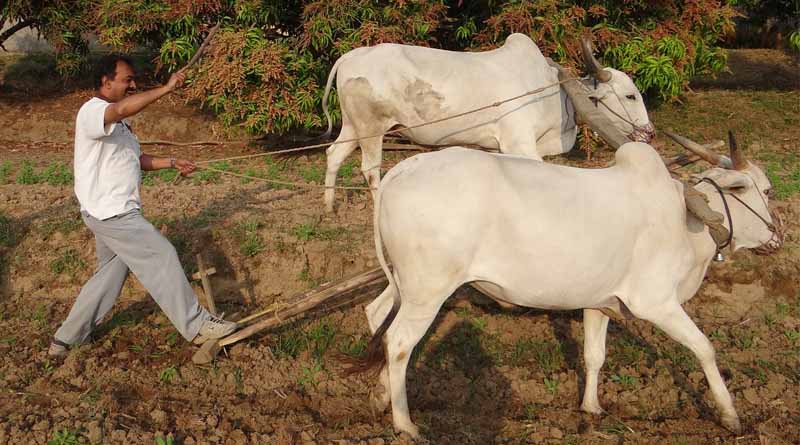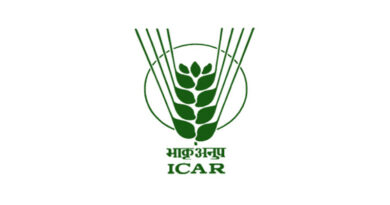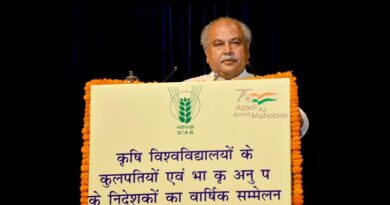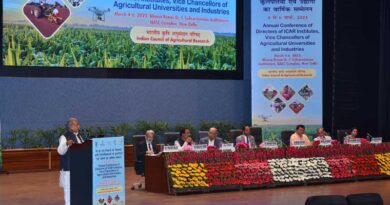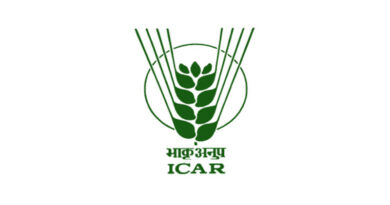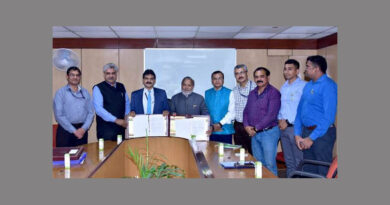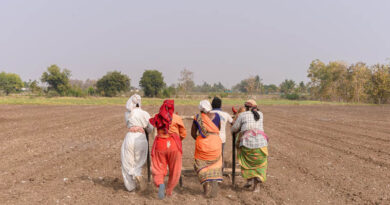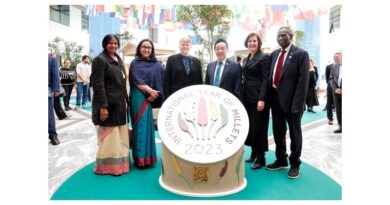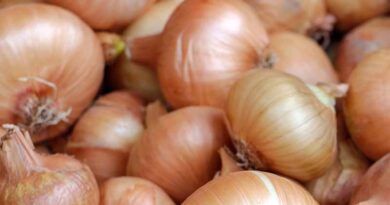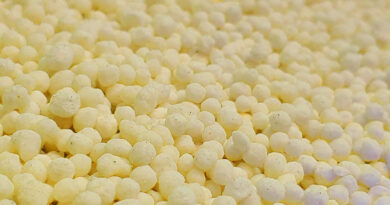ICAR capable of dealing with the emerging challenges of agriculture: Dr. Pathak
Special conversation of Krishak Jagat with the Director General of the Indian Council of Agricultural Research
08 November 2023, Bhopal: The agriculture sector in the country is continuously progressing towards increasing food grain production and making it self-reliant. But most of the challenges still lie in this area. There is a need to adopt technological systems to meet challenges like fragmentation of cultivable land, depletion of soil and water resources, the decline in groundwater levels, climatic adversities, and marketing of farm products. The institutes of the Indian Council of Agricultural Research (ICAR) and Agricultural Universities and Agricultural Science Centers are working in this direction. New research, short ripening varieties, agricultural machinery, and soil health are being improved; information systems, development of digital technology, and e-platforms are being made available for the convenience and benefit of farmers. This information related to agricultural research and agricultural education was given by Dr. Himanshu Pathak, Director General and Secretary of the Indian Council of Agricultural Research, in a special meeting with Krishak Jagat. Dr. Pathak had recently come to Bhopal to participate in the program of the Indian Soil Science Society. Dr. Pathak said that India has not only become self-sufficient in food grain production but is also exporting. He said that the target of total food grain production for the year 2023-24 has been set at 3320 lakh tonnes whereas the total food grain production in the year 2022-23 is estimated to be 3305 lakh tonnes.
Research and Technology
The Director General said that the National Agricultural Research System in collaboration with the Indian Council of Agricultural Research has made significant contributions to the improvement of crop varieties. He said that since 1969, a total of 5967 crop varieties have been developed by the National Agricultural Research System, which includes 2943 cereals, 975 oilseeds, 1083 pulses, 233 fodder, 538 fiber, 146 sugarcane and 49 other crop varieties. He said that due to the efforts of ICAR, a total of 87 biofortified varieties have been developed so far. This includes varieties of crops like rice, wheat, maize, millet, ragi, lentils, groundnut, linseed, mustard, soybean, cauliflower, potato, and pomegranate.
Dr. Pathak said that about 64 multipurpose integrated farming systems have been developed to increase the productivity and income of 86 percent of small and marginal farmers in the country. He said that in the field of veterinary medicine, the institute has developed a vaccine for the Lumpy virus, a burning problem in animals. He said that there are 113 institutions and 74 agricultural universities in the country. ICAR is at the forefront of conducting cutting-edge research in the field of agricultural sciences.
For Young Farmers
Emphasizing the need to connect the country’s leading youth with the agriculture sector, the Director General said that many programs are being run by ICAR for vocational training and capacity development of the youth so that the youth can be made entrepreneurs in the agriculture sector. He said that to attract youth in the agriculture sector, 100 centers of Arya have been opened across the country and work is being done through 731 Krishi Vigyan Kendra of the country for technology evaluation and capacity development.
Role of Soil
Dr. Pathak said that to increase the income and production of farmers in the country, there is a need to increase awareness and research on soil health among the common people as well as the farmers. He said that for this, emphasis should be laid on soil health card and fertilizer research. He says that for advanced farming, it is necessary for the soil to be healthy and rich in nutrients.
Digital Technology
The Director General said that the use of digital technology in farming is the need of the hour. He said that the Indian Council of Agricultural Research has also uploaded more than 100 mobile apps developed by State Agricultural Universities, ICAR, and KVKs on its website. These mobile apps provide information to farmers on subjects like agriculture, horticulture, veterinary medicine, poultry, fisheries, natural resources, management, etc.
Dr. Pathak said that farmers are being provided with packages of methods, market prices, weather information, and advisory services in the mobile app.
He said that apart from this, ICAR has developed a Kisan Sarathi digital multi-media platform, using which Krishi Vigyan Kendra across the country is advising the farmers, thereby providing timely useful information.
Also Read: Hidden costs of global agrifood systems worth at least $10 trillion
(For Latest Agriculture News & Updates, follow Krishak Jagat on Google News)

